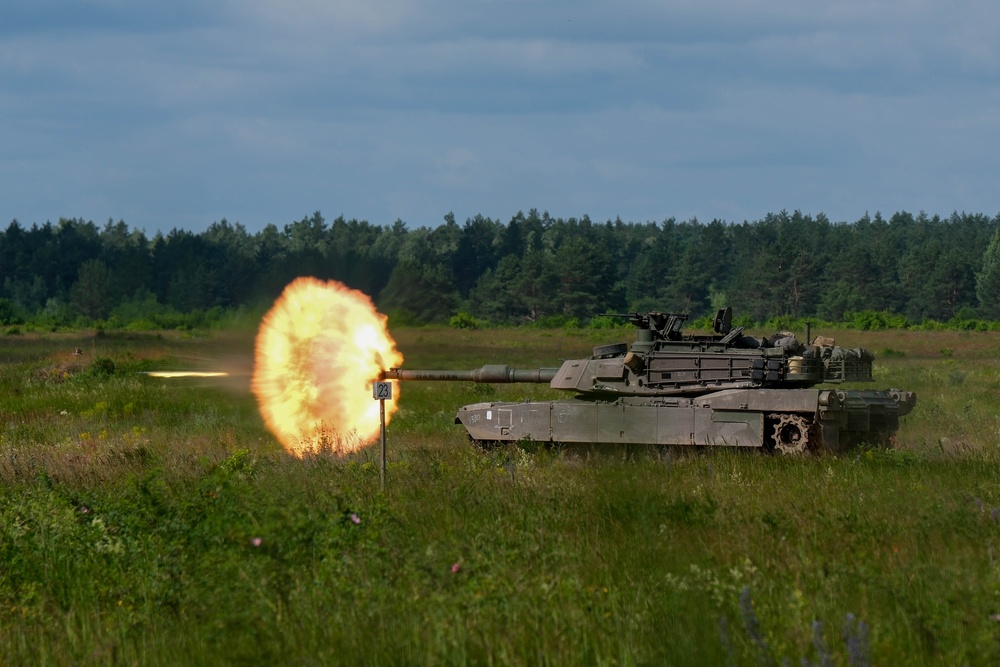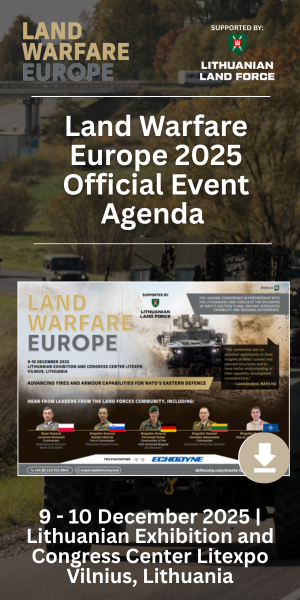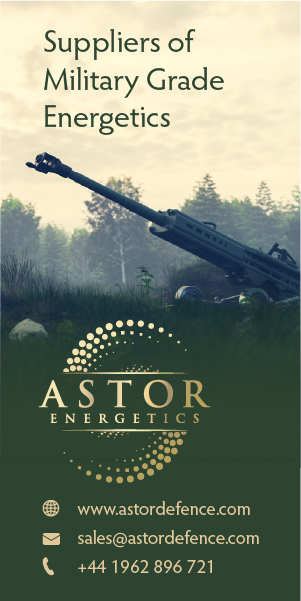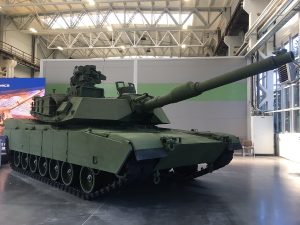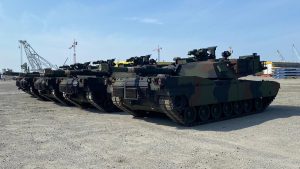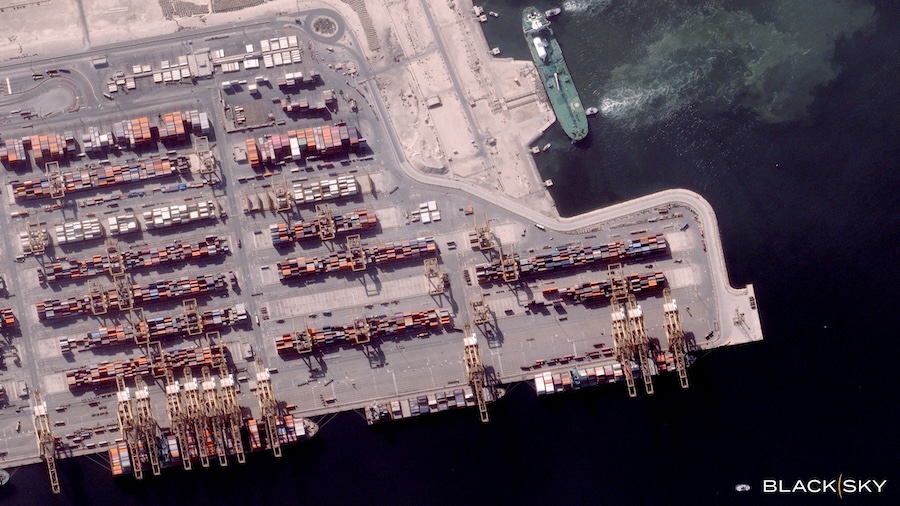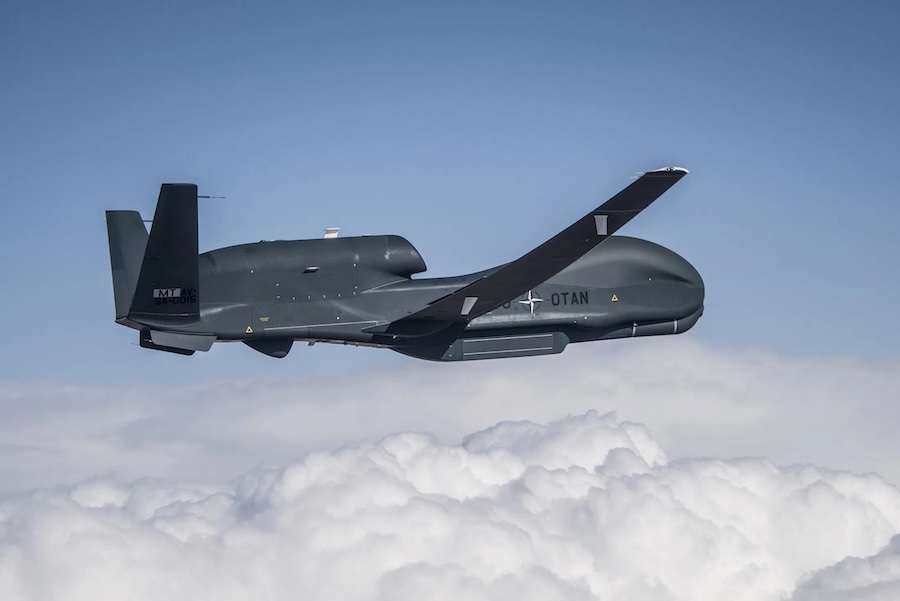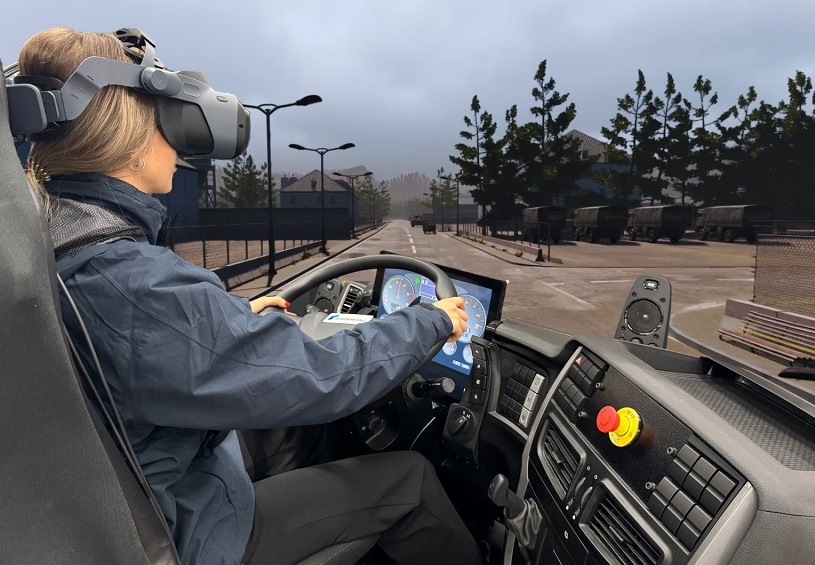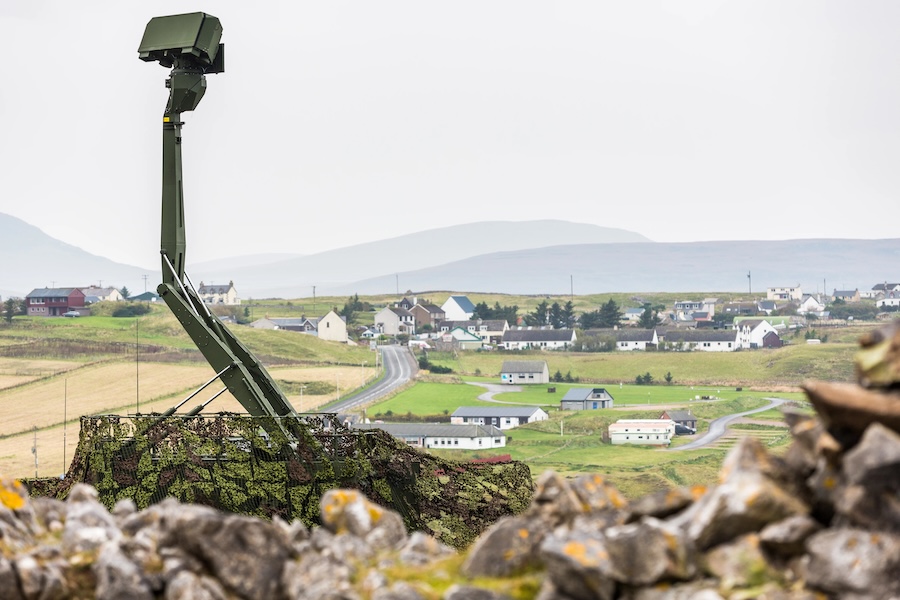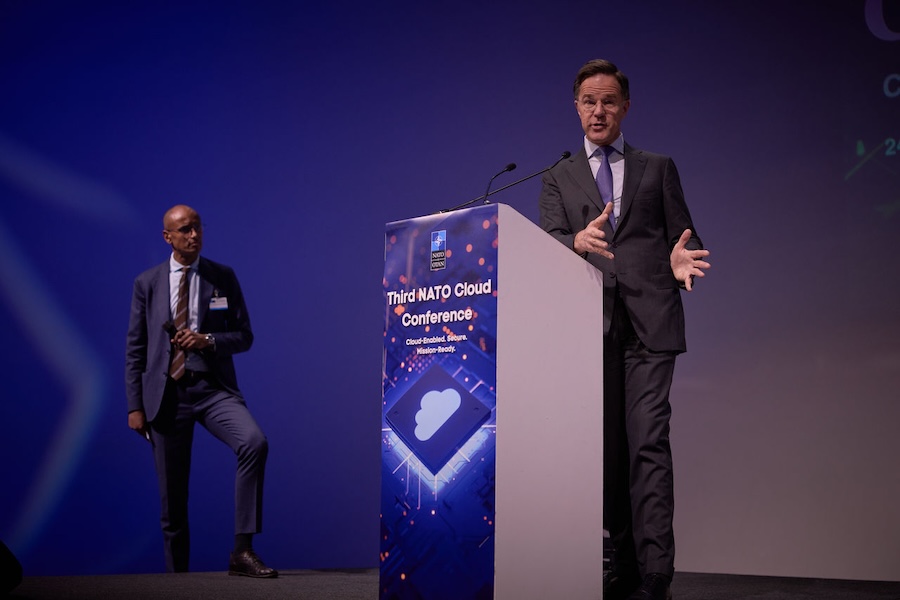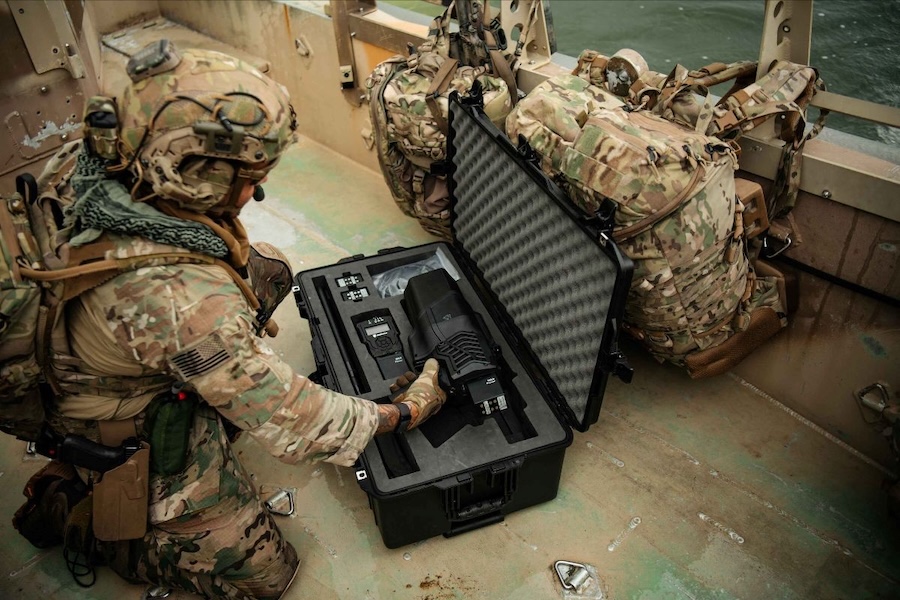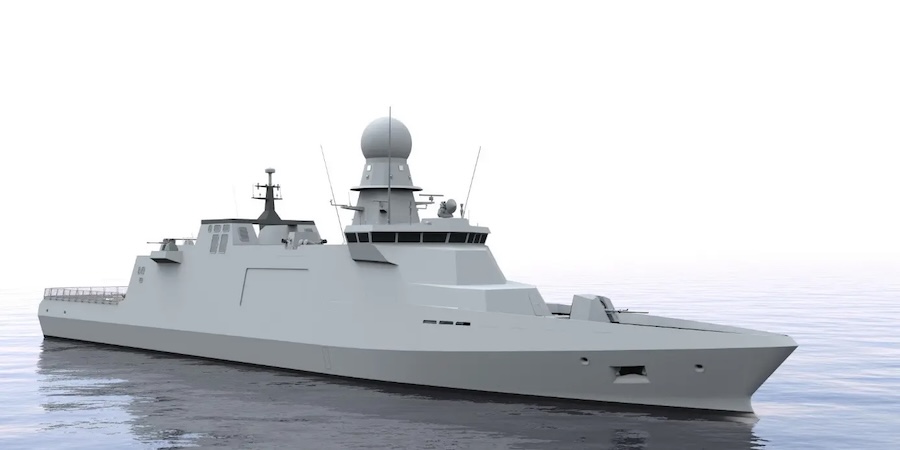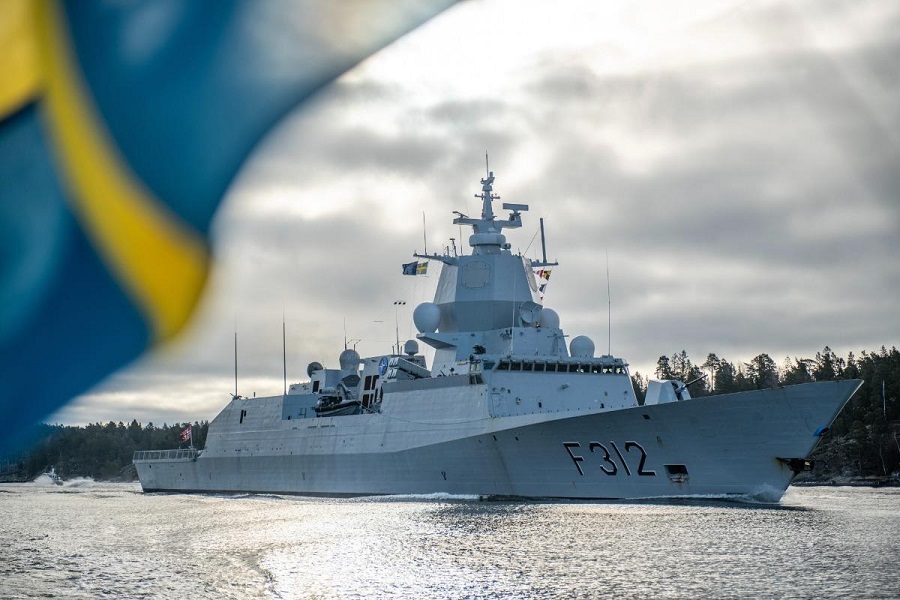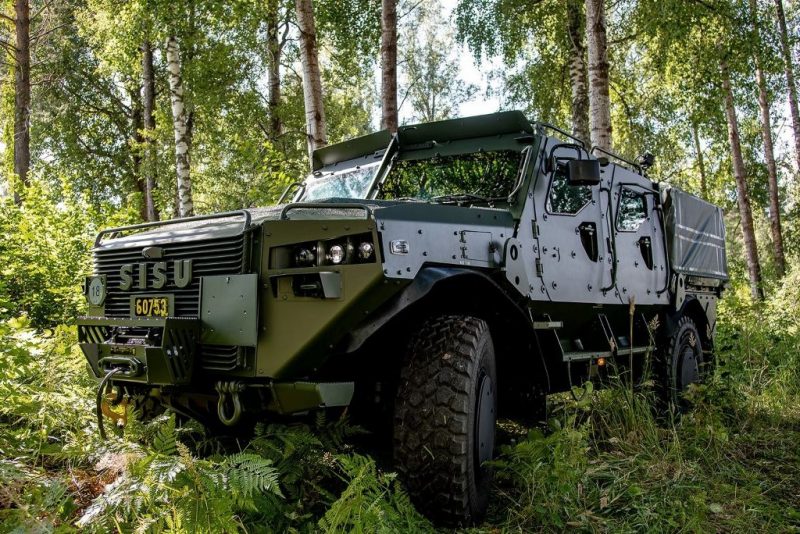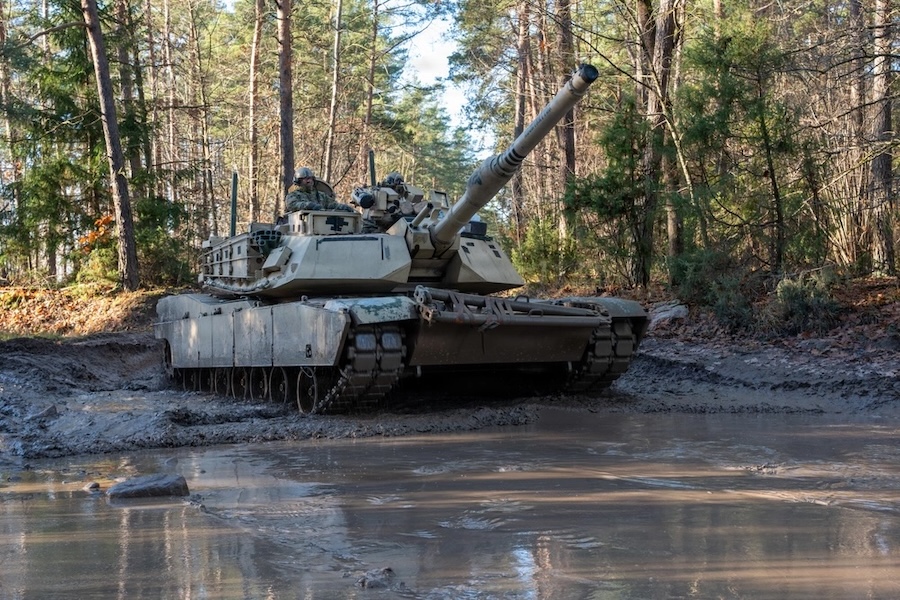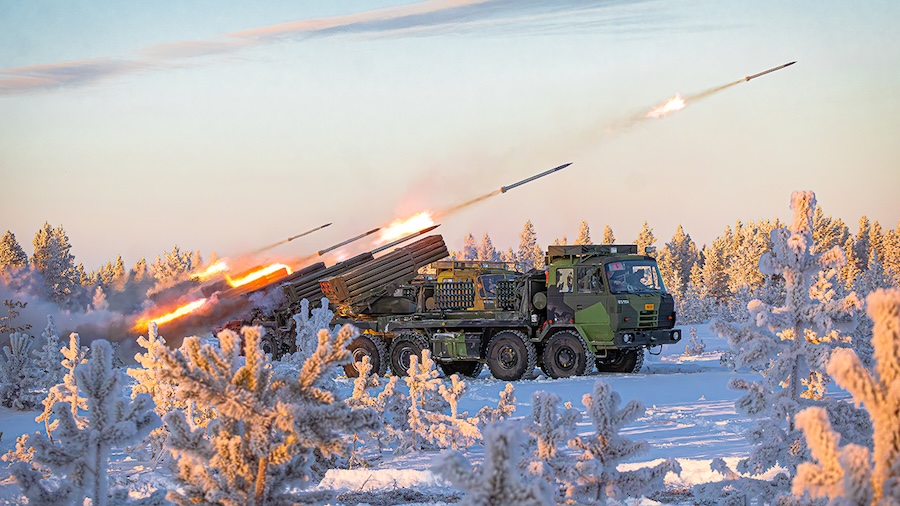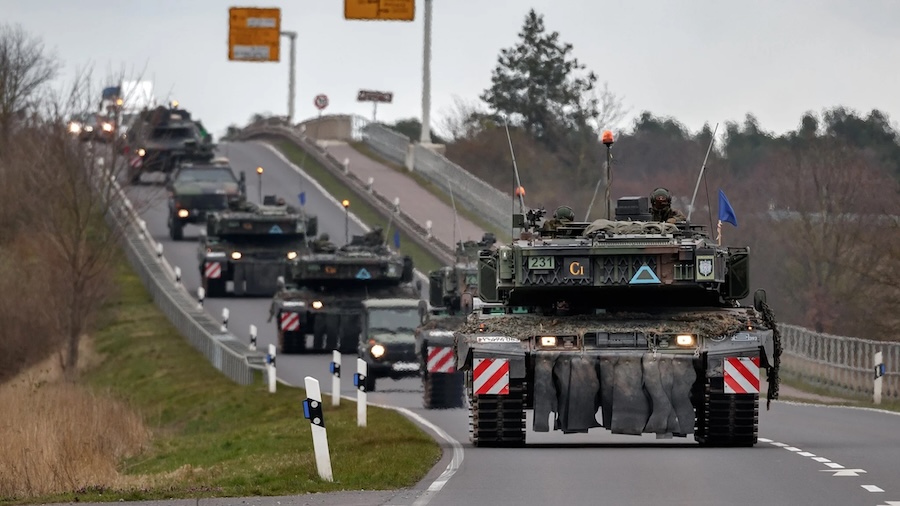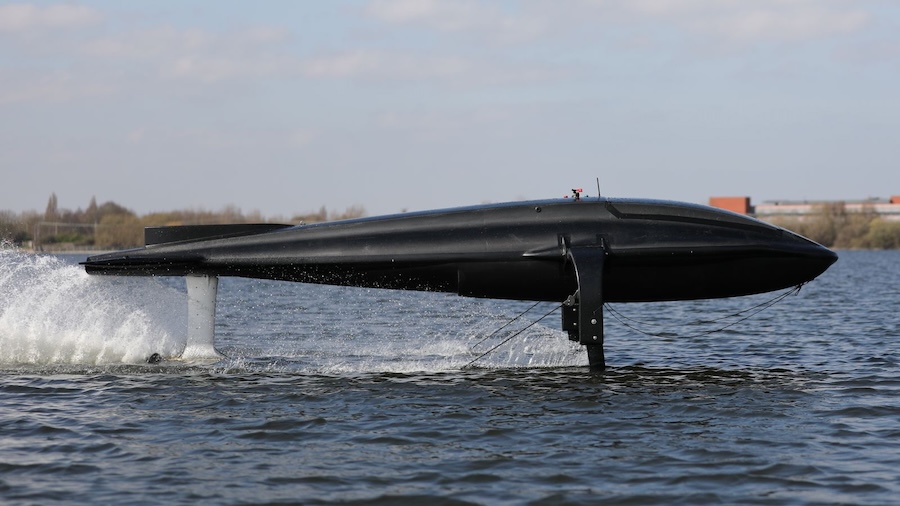The exercise brought together U.S. troops with Poland’s 15th Mechanized Brigade and the British Army’s 1st Royal Yorkshire Regiment. Together, they demonstrated the ability to deploy quickly and operate effectively against enemy forces in both daylight and nighttime conditions.
Planning for the week-long CALFEX required detailed coordination of troop movements and communication objectives. On the first day, soldiers from all three nations assembled around a sand table to rehearse and prepare for their roles in the field.
“This training is extremely valuable to the platoon, company, battalion and battle group level, because it truly enables lethality from the small-unit,” said U.S. Army Capt. Preston Pierson, Battle Group Operations Officer. The exercise allowed units to practise key battlefield manoeuvres, including the passage of lines—where one unit advances through another’s position to continue the assault or provide support.
During the live-fire phase, Polish soldiers in BMP-1 Infantry Fighting Vehicles led the advance into designated enemy territory. “We realized how hard these guys train and how well-prepared they are,” said U.S. Army Staff Sgt. Helen Dieguez, a tank crew commander with Alpha Company. “They knew exactly what they had to do and how to do it… they move like they own it.”
Following simulated contact, Polish forces engaged enemy targets and called for support, prompting U.S. Army M1A2 SEPv3 Abrams tanks to surge forward. These tanks used their M256 cannons to support the Polish advance and suppress hostile positions.
“That’s my favorite part, seeing rounds go down,” said tank crew driver, Private 1st Class Marcos Bonilla of Alpha Company. Meanwhile, British troops in Jackal vehicles provided essential fire support and reconnaissance, helping identify enemy activity for coordinated action.
The CALFEX served as an opportunity for soldiers to gain practical experience with allied weapons systems and tactics. It significantly improved interoperability from platoon to battle group level through joint training.
“Overall, it was a great experience,” said 2nd Lt. Kaczka of the Polish Land Forces. “We learned a lot about our capabilities and differences and how to overcome them… I’d love to see more complex exercises like this to show how we can improve and cooperate even better in the future.”
Task Force Iron, which oversees such multinational efforts, plays a key role in strengthening NATO cooperation and regional security. Its mission is to provide combat-credible forces across Europe and support V Corps, the U.S. Army’s only forward-deployed corps on the continent.




